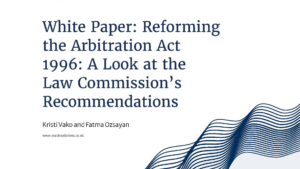Personal Injury: What You Need to Know If You are Accidentally Injured by an E-Scooter
Have you got a question?
E-scooters are becoming increasingly popular, and as they do, there are more injuries occurring. So, what should you do to make sure you stay safe when using these devices? Here are some tips to help you stay healthy this Injury Prevention Week.
The UKs use of E -Scooters is growing, with TFL announcing a further extension into November for current trials for various parts of London. As these trials increase and the usage of E-Scooters rise, the records involving collisions are emerging. Last year in the UK there were 1,359 collisions recorded by the Metropolitan Police. This record jumped from 484 the previous year.
If you have been hurt in an e-scooter accident and want to file a claim for compensation, contact us.
Halfords reported an 184% rise in e-scooter sales in the first half of this year, demonstrating the growing popularity of e-scooters. The government has recognized the rising popularity and acknowledged the environmental benefits. However, it is concerned about the safety of pedestrians, who are now surrounded by so many more scooters on roads and sidewalks.
As a result, the government established a program on 4th July 2020 that allowed towns all over the UK to conduct 12-month pilot programs offering rental e-scooters to residents. The program has been implemented in 31 regions across England.
Rules of using a rental e-scooter in the UK:
- Must have full or provisional (Category Q) driving licence
- Riders must be over 16
- Max speed 15.5 mph
- Helmets not mandatory (similarly to cyclists, will likely be found contributory negligent if you are involved in accident and not wearing one)
- Compulsory basic motorcycle training not required
- Can only be ridden on roads or cycle lanes
- Must have third party insurance
- Private e-scooters can only be used on private land
The program has been extended to include further areas of London in the autumn. E-scooter rental programs are available in Canary Wharf, City of London, Kensington & Chelsea, Ealing, Richmond upon Thames, and Hammersmith. E-scooters in these places are only permitted to travel at a maximum of 12.5 mph, with riders restricted to specified roads and cycle paths due to increased congestion in London. Insurance is provided by the three e-scooter rental operators who have been selected to run the pilot by Transport for London. Holders of provisional motor vehicle driving licences will be able to rent e-scooters and do not have to display L-plates.
Overall, the pilot has been considered a success and the Government has now extended it across the UK to 31 March 2022.
Do you need insurance to ride an e-scooter?
Yes. According to section 185(1) of the Road Traffic Act 1988, e-scooters are classified as “powered transporters,” which is within the definition of a “motor vehicle.” As a result, they must be insured and controlled in the same way as other motor vehicles. Privately owned e-scooters are not authorised to be utilised on the UK public roadway; hence no insurance company will provide coverage.
Rental businesses must supply an insurance policy as part of the rental contract, but they are not obligated to do so. You may be prosecuted for not having insurance if you are discovered riding a private e-scooter on a UK public highway.
What are the fines for riding an e-scooter in the UK?
If you are found to be riding an e-scooter without insurance, you could end up with:
- A Fixed Penalty Notice for not having insurance, a £300 fine, and 6 penalty points.
- A conviction for driving without insurance results in an IN10 endorsement. This remains on your driving licence for four years from the date of the offence. You also need to disclose it to insurance providers for a further year. You must have a category Q entitlement on your driving licence to use an e-scooter.
- If you do not have a full/provisional driver’s licence you can receive a Fixed Penalty Notice for driving with no licence, up to £1,000 fine and 3 to 6 penalty points. If you are found to be riding an illegal e-scooter the scooter could be impounded.
Can you claim if you're injured by an e-scooter?
E-scooter riders should have insurance, which allows you to make a claim against them in the same way as if you were hit by a car or motorcycle. The procedure is different if you are injured by a scooter rider who does not have insurance, but you may still file a claim. Motor Insurers’ Bureau (MIB) is an organization that helps people who are not covered by insurance get compensation. It steps in and acts as an insurer for them. If you would like more information, please contact us because we have assisted numerous individuals in making a claim to the MIB.
Can you make a claim if you're injured while riding an e-scooter and uninsured?
Yes. You can still make a claim against the other party’s insurance even if you were not at fault and are uninsured. Not having insurance is not a sufficient criminal offense to prevent you from making a claim according to case law.
In the case of McCracken v Smith, Motor Insurers’ Bureau & Bell [2015], the claimant was riding pillion on a stolen, unregistered, off-road petrol-powered scooter when it collided with a minibus. The claimant sought to sue both the motorbike rider and minibus driver for the serious injuries sustained. It was argued that the claimant should be found contributorily negligent for the injuries. The court agreed and therefore he could not claim against the rider. However, the claimant could claim against the minibus driver, but the damages awarded were a reflection of the negligence shown by the claimant.
The issue of whether claiming for injuries sustained whilst committing unlawful acts was raised in the case of Wallett v Vickers [2018]. The court ruled against it, citing as an example of reckless driving. This defence would be unlikely to succeed in a scenario when the crime was not having any insurance because reckless driving is a criminal offense but does not prevent someone from recovering damages.
It will, however, be self-incriminating to make a claim, making it likely that you will be charged with driving without insurance. This may result in the suspension or revocation of your driver’s license depending on the circumstances and how many points you have on it. Six penalty points results in the revocation of a driver’s license. Your insurance premiums on any vehicle you drive would also rise because of this. If you are riding a vehicle with no insurance and the police officers seize it, you are responsible for deciding whether making a claim is worth it.
The future of e-scooters in the UK
The Law is keeping a close eye on the success of e-scooter pilot programs currently underway. We would be happy to hear from you if you were a victim of an e-scooter accident that was not your fault and where you suffered personal harm. We can take instructions on a no-win no-fee basis, and we have a team of specialist personal injury lawyers to help you in seeking compensation.
Ercan is an experienced litigation lawyer and since joining the company in 2017 he has continuously built and grown Oracle Solicitors’ litigation department.
-
Aviation House, 125 Kingsway
London WC2B NH
United Kingdom
- (+44) 020-3051-5060
Book a call back
Share this article
Got a question?
Please complete this form to send an enquiry. Your message will be sent to one member of our team.
Related posts

THE AMERICAN WAY TO FLIGHT COMPENSATION: A COMPARATIVE ANALYSIS WITH THE EU261 REGULATION.
UNDERSTANDING THE NEW U.S. DOT (DEPARTMENT OF TRANSPORTATION) MANDATE ON IMMEDIATE FLIGHT COMPENSATION. Last 24th of April 2024, the Biden-Harris Administration announced that

Oracle Solicitors advises a German assets acquisition by a Chinese purchaser
Our client is a company listed in Shanghai Stock Exchange, one of the biggest intelligent power distribution solution providers as well as manufacturer of smart meters, transformers, box-type substations, E-Car charger and photovoltaic inverters.

Oncological Oblivion: Inclusion as the Objective
A definitive law for oncological oblivion, namely the opportunity for individuals who have recovered from an oncological condition to erase the ‘bureaucratic’ negative effects that the disease still imposes on employment searches, adoptions, mortgage applications, or insurance subscriptions.

Reforming the Arbitration Act 1996: A Look at the Law Commission’s Recommendations
Have you got a question? Enquire Now Kristi Vako and Fatma Ozsayan have looked at the new recommendations published by the Law Commission.



